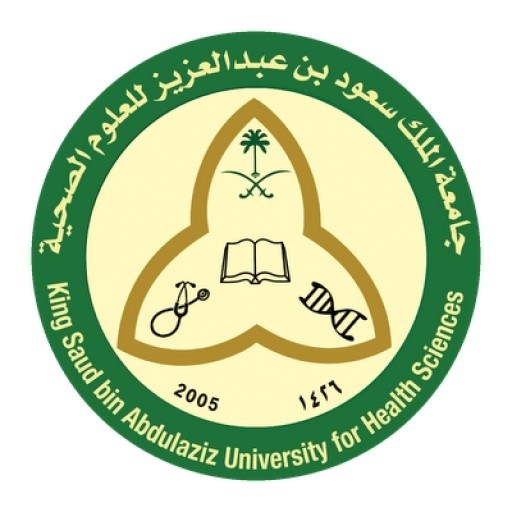Photos of university
Health Informatics at King Saud bin Abdulaziz University for Health Sciences is a specialized graduate program designed to prepare professionals who can effectively manage and analyze health data, implement health information systems, and improve patient care through technology. This program combines principles from healthcare, information technology, and data management to equip students with the skills necessary to bridge the gap between clinical practice and information science. Students will explore topics such as electronic health records, health data standards, healthcare analytics, and telemedicine, fostering a comprehensive understanding of how digital tools can enhance healthcare delivery. The curriculum emphasizes practical applications, encouraging students to undertake projects that address real-world healthcare challenges using modern informatics solutions. Graduates of this program are prepared to work in various healthcare settings, including hospitals, clinics, public health organizations, and government agencies, contributing to the development of efficient, secure, and patient-centered healthcare systems. With a focus on innovation and continuous improvement, the program also promotes research activities that support the advancement of health informatics practices in the region and beyond. Delivered by experienced faculty members with expertise in health sciences and information technology, the program ensures that students gain both theoretical knowledge and practical skills necessary for leadership roles in the evolving landscape of health informatics. Students are encouraged to engage in interdisciplinary collaboration, critical thinking, and lifelong learning to stay abreast of technological advancements. Overall, the Health Informatics program at King Saud bin Abdulaziz University for Health Sciences aims to produce capable professionals who can lead digital transformation within healthcare institutions, improve patient outcomes, and support health system resilience through innovative informatics solutions.
Level One
- Research Methods and Information Sources in Biomedical & Health Information Sciences
- Communication Skills in Health Informatics
- Fundamental of Health Information Management
- Health Care Information Systems
Level Two
- Health Care Data
- Application of Health Care Information Systems
- Ethics and Legal Issues in Health Informatics
- Management of Health Care Communication Systems
Level Three
- Health Care I.T. Vendor Management
- Health Information Systems Analysis and Design
- HINF 621 Theoretical Concepts of Clinical Decision Support Systems
- HINF 622 Health Informatics Business Intelligence Tools and Application
- HINF 631 Patient Safety Topics in Health Informatics
- HINF 632 Consumer Health Informatics
- HINF 633 Health Care Information Security
- HINF 634 Transforming Healthcare using Business Intelligence and Predictive Analytics
- HINF 641 Informatics for the Clinical Investigator
- HINF 642 Knowledge Management in Healthcare Organizations
Level Four
- Social and Organizational Issues in Health Informatics
- HINF 623 Practical Implementation of Clinical Decision Support Systems
- HINF 635 Mobile Health Informatics
- HINF 636 Health Care Project Management
- HINF 643 Health Care I.T. Administration
- Health Informatics Research Project
Requirements
- A Bachelor’s degree obtained from an accredited university in medicine, dentistry, nursing, pharmacy, radiography, laboratories, medical engineering, and management of health information, and information technology, plus two years of work experience within the healthcare sector.
- A minimum GPA of 3.75 out of 5.0.
- A minimum score of 550 in TOEFL examination or a minimum score of 6.0 in ILETS examination.
- Two academic recommendations by previous instructors.
- A letter of recommendation/consent from the employer.
- Applicants will be further interviewed on individual basis prior the final admission.
The financing studies for the Health Informatics program at King Saud bin Abdulaziz University for Health Sciences are primarily structured to support both Saudi nationals and international students through a variety of funding options. The university offers a comprehensive scholarship program aimed at promoting academic excellence and supporting talented students in pursuing advanced degrees in health informatics. These scholarships typically cover tuition fees, accommodation costs, and provide a stipend for living expenses. The details of eligibility criteria, application procedures, and the extent of financial coverage are usually outlined on the university’s official website and may vary annually based on available funding and strategic priorities.
In addition to university-sponsored scholarships, students may be eligible for government grants or financial aid programs, especially Saudi nationals who meet certain academic and socioeconomic criteria. The Ministry of Education and other government entities often support postgraduate students in health sciences fields, which can include health informatics. These funds are intended to alleviate financial barriers and encourage research and development in health informatics, which is a priority sector within the Kingdom's Vision 2030 to digitize healthcare and improve health services through technological integration.
Furthermore, many students pursue external funding options such as research grants and sponsorships from private sector organizations, healthcare providers, and international health informatics agencies. These external sources often support applied research projects, internships, and collaborative initiatives, providing additional financial stability during the course of their studies.
The university also encourages financial planning and resource management among its students, offering guidance on scholarships, work-study opportunities, and loan options where applicable. Graduate students are sometimes given opportunities to work as teaching assistants, research assistants, or within administrative support roles, which can provide supplementary income and practical experience in the field of health informatics.
Overall, the financing of the Health Informatics program at King Saud bin Abdulaziz University for Health Sciences is designed to be inclusive and supportive, aiming to attract a diverse student body from various backgrounds. The university’s commitment to funding avenues reflects its broader goal of advancing health informatics education and research while ensuring that financial constraints do not hinder capable students from pursuing this important specialization in healthcare technology.
The Health Informatics program at King Saud bin Abdulaziz University for Health Sciences is designed to prepare students for a comprehensive understanding of the integration of information technology within healthcare settings. The curriculum emphasizes the development of skills necessary for managing healthcare information systems, analyzing health data, and supporting clinical decision-making processes through advanced informatics tools. The program aims to equip graduates with knowledge of database management, electronic health records, health data standards, and health information exchange protocols, ensuring they are well-prepared to improve healthcare delivery through innovative technological solutions. Students will engage in coursework covering health information systems architecture, healthcare project management, health analytics, and cybersecurity measures to protect sensitive health information. Practical training and internships are integral parts of the program, providing real-world experience in hospitals and healthcare organizations, where students can apply their learned skills in a professional environment. The program also emphasizes interdisciplinary collaboration, critical thinking, and research skills to foster continuous improvement and innovation in health informatics practices. Graduates of this program are expected to pursue careers in hospitals, government health agencies, private health organizations, and technology companies specializing in healthcare solutions. They will contribute to the optimization of clinical workflows, improve patient outcomes, and support health policy development through effective data management. The program's faculty comprises experienced professionals and researchers in health informatics, ensuring that instruction remains aligned with current industry standards and technological advancements. Overall, the Health Informatics program at King Saud bin Abdulaziz University for Health Sciences represents a strategic educational pathway for individuals aiming to influence the future of healthcare through technology and data management.

